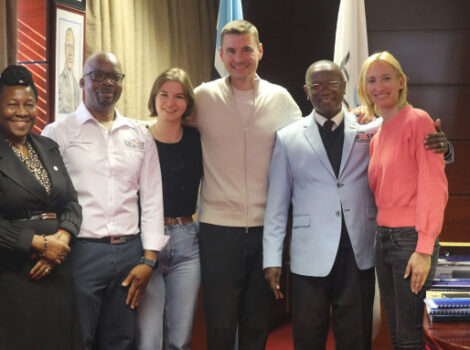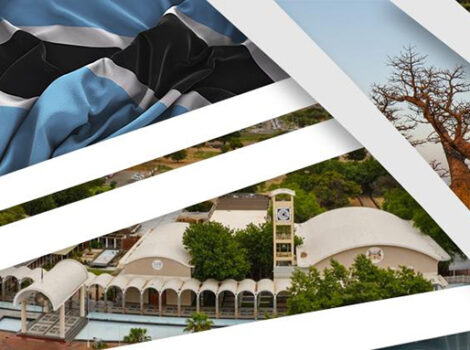
Botswana’s government plans to link up with UNCTAD (United Nations Conference on Trade and Development) to jointly review the country’s National Research, Science, Technology and Innovation Policy.
Minister of Communications, Knowledge and Technology, Thulagano Segokgo said the review was necessary in order to align policy with both regional and international protocols to support sustainable development. He added that there was an urgent need to popularise STEM (Science, Technology, Engineering and Mathematics) and innovation to help drive the country’s progress towards a knowledge economy.
The objective is to develop what authorities describe as “a robust national research agenda with clear priorities.” Segokgo encouraged citizens to propose tech innovations with a view to monetising solutions and help “bridge the tech gap”.
“It is now time for outputs of research and development together with products, services from innovation to serve as opportunities for employment creation and revenue earning,” he said.
He urged greater exploration of big data: “…be it astronomy or satellite space, to create opportunities and applications that have local relevance and global impact.”
According to Segokgo, the Government has dedicated the month of August to raise awareness of what is categorised as ‘Research, Science, Technology and Innovation (RSTI)’ and reminded the market of the goals entrenched in the RSTI Policy Implementation Plan of 2012.
Government has planned several activities in 2022, specifically to unite stakeholders and encourage information share and best practice identification around R&D and tech innovation.
Botswana launches platform to digitally connect parliament with constituencies
Meantime, Botswana’s parliament has launched its digital platform Botswana Speaks to strengthen communication between MPs and communities. Botswana Vice President Slumber Tsogwane said the platform was developed after traditional Kgotla consultation (when community members meet at a tribal court or Kgotla to discuss, deliberate and make decisions on issues) and will provide “round the clock” access to elected representatives.
Tsogwane said Botswana is determined not to be left behind in Africa’s 4IR journey. Botswana Speaks will mean that parliament proceedings will be broadcast and available for live streaming to 57 constituencies. It will also enable direct communication between these constituencies and members of parliament via the platform or via SMS.
The Government believes the platform will not only empower citizens with the channel of communication, but will also assist elected officials to become more efficient. Botswana Speaks advisor, Vasilis Koulolias said the platform was originally developed in 2012 with the primary aim of connecting Batswana to their parliamentarians. Parliament ICT Committee Chairperson Mpho Balopi said the project was piloted in Boteti West, Nata/Gweta, Maun West and Ramotswa, prior to national rollout.
Phandu Skelemani, Speaker of the National Assembly, said;
“Democratic participation can be both empowering to the participants and effective in influencing the representative bodies that have the final power to make public decisions.
Botswana Speaks talks to these very sentiments and aims to contribute to shaping a democratic, unbiased and secure nation where the rule of law and unanimity reigns.”
Botswana Speaks is the latest in a string of initiatives the Government has introduced to bolster the country’s connectivity. The SmartBots project is a recent example. Currently being rolled out, the objective behind the project is to connect over 500 villages as part of a broader digital agenda.
The Government has identified the youth as a primary target market for this agenda.
Source: https://itweb.africa/content/KWEBbvyLaldqmRjO



